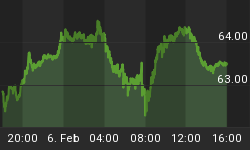So far 2012 has led the private industry to a phenomenon rarely witnessed across American history: a large number of businesses in this country are operating at or near their full capacity. Just a month ago automakers Ford and Chrysler were forced to cancel summer shutdowns for a number of plants. Chrysler CEO Sergio Marchionne has been quoted as saying that Chrysler simply can't produce another car without expanding its capacity - that means building new plants, buying new equipment, and hiring new workers.
To the same point, a number of engineering firms that we regularly contact have told us that they are being forced to turn down work. Many are quoting so many project that they tell us that if they win all their bids, they'll have to turn down half the projects.
After the 2008 downturn this country lost a number of suppliers, particularly in the automotive sector. Now, years later, production is back to or near the pre-crash peak, but capacity and the number of suppliers have remained reduced. As a result, both are now being stretched to their limits
Many firms, it seems, have been backed into a corner where they are producing all they can and don't want to expand - especially if doing so will require borrowing. While many could pay for expansion in cash, they would likely fund projects with credit, and they don't want to borrow without a clear outlook on government policy.
For these companies, failure to borrow is not a question of poor credit. While it's hard for a lot of individuals to get loans lately, this is more restricted to those with poor or limited credit history. The companies we're talking about have good profits and plenty of assets to secure loans. They have adequate access to credit, but they don't WANT to borrow.
What many business leaders have been eagerly awaiting is a clearer picture of how forthcoming policies are going to look. For the past four years they've had to deal with a growing number of anti-business policies coming from Washington, and they're in no mood to expand their business and create jobs without knowing that they'll be able to survive whatever new rules Washington sends down the pike.
In just the past four years the private industry has had to contend with Healthcare Reform and repeated talk of Cap and Trade legislation of some variety, plus increased bureaucracy among government agencies and growing compliance costs. That's not to mention the usual headaches, which have lately grown to include the increase difficulty in attracting skilled workers.
Thankfully business leaders are finally starting to get a picture of what the environment for business is going to look like in 1-3 years. Scott Walker's victory in his special Wisconsin election is a valid case-in-point; and it clearly shows two things.
First and foremost, public opinion in this country is undergoing a massive shift. Unions - particularly public sector unions - are losing a lot of their power. Americans are finally beginning to ask what these unions have done lately for their members, and they aren't impressed with the answers. Membership has fallen pretty much nation-wide, regardless of industry as a result.
Second, Scott Walker's win in his recall election demonstrates that the voting public isn't being honest with pollsters. Leading up to this special election, polls showed Walker winning, but only by a 1-3 percent margin. At last count it appeared that - when all the votes are tallied - he should win by 7% or more.
It's also worth noting that when news of Walker's victory hit the wires, Asian markets spiked and American futures (our markets had closed for the evening) jumped nicely. Clearly these new trends - like them or not - seem to agree with America's private sector. Hopefully they will gain the motivation they need to expand capacity and continue growing the American economy.















